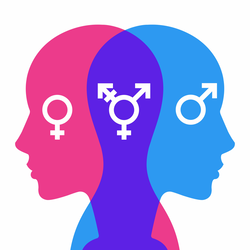PSYCHO-SEXUAL DISORDERS

Erectile Dysfunction
Diagnosing Erectile Dysfunction involves a comprehensive assessment, including medical history, physical examination and potentially specialized tests. Blood tests may assess hormone levels, while imaging studies, such as ultrasound, can evaluate blood flow. Psychological factors may also be considered. Accurate diagnosis enables tailored treatment, addressing both physical and psychological aspects.

Premature Ejaculation
Diagnosing Premature Ejaculation involves a thorough evaluation, considering medical history, sexual history and psychological factors. No specific tests exist, but discussions about ejaculation patterns, relationship dynamics and potential contributing factors help confirm diagnosis. Collaborative communication between the patient and healthcare provider guides effective treatment strategies.

Dhat Syndrome
Diagnosing Dhat Syndrome involves understanding symptoms such as excessive concerns about semen loss and associated physical or psychological distress. Clinicians assess medical and sexual histories, ruling out underlying conditions. Culturally sensitive discussions help establish a diagnosis, leading to tailored interventions addressing both the physical and psychological aspects of the syndrome.

Paraphilias
Diagnosing paraphilias involves assessing atypical sexual preferences causing distress or impairment. Clinical interviews explore fantasies, behaviours and associated distress levels. Psychosocial factors, medical history and risk assessment contribute to a comprehensive evaluation. Accurate diagnosis guides individualized treatments, often involving psychotherapy and if necessary, pharmacotherapy.

Gender Identity Disorder
Gender Identity Disorder, now referred to as Gender Dysphoria, is diagnosed through a comprehensive assessment, considering persistent distress related to one’s assigned gender at birth. Clinical interviews, psychological evaluations and exploration of gender identity development contribute to a nuanced diagnosis, guiding appropriate therapeutic interventions, including counseling and gender-affirming approaches.
